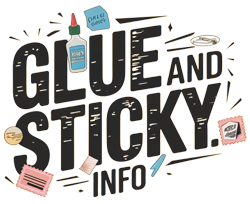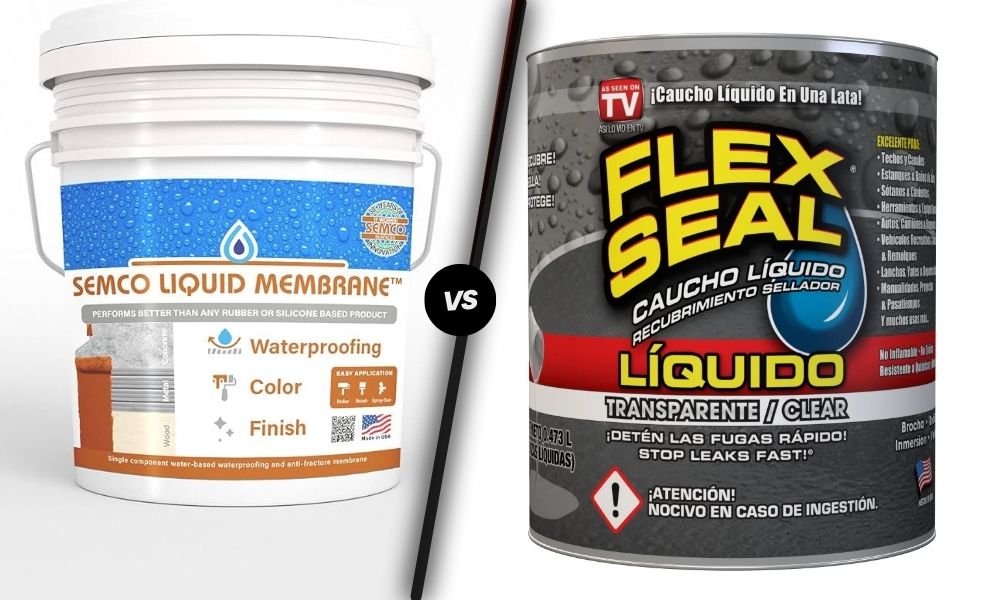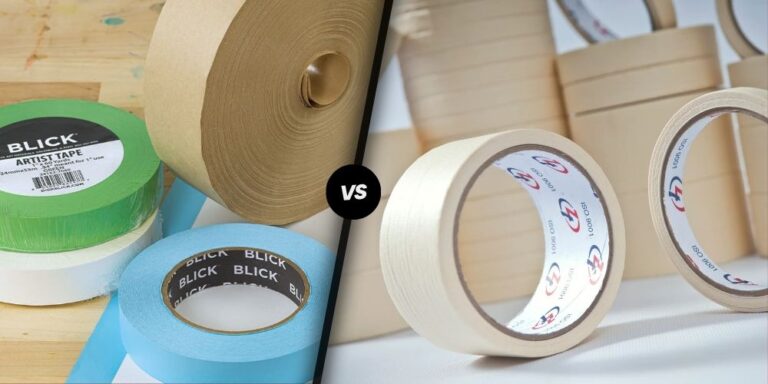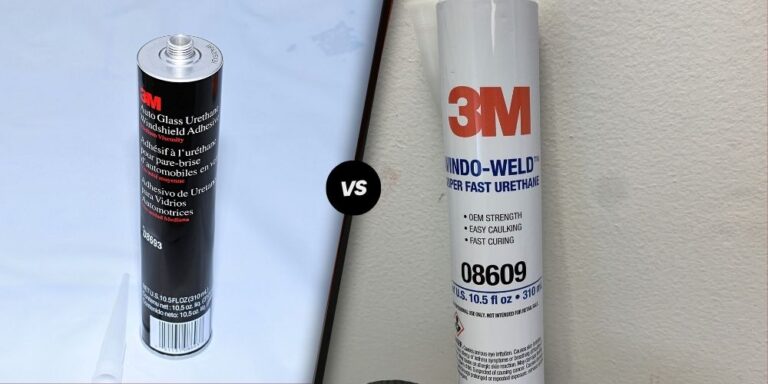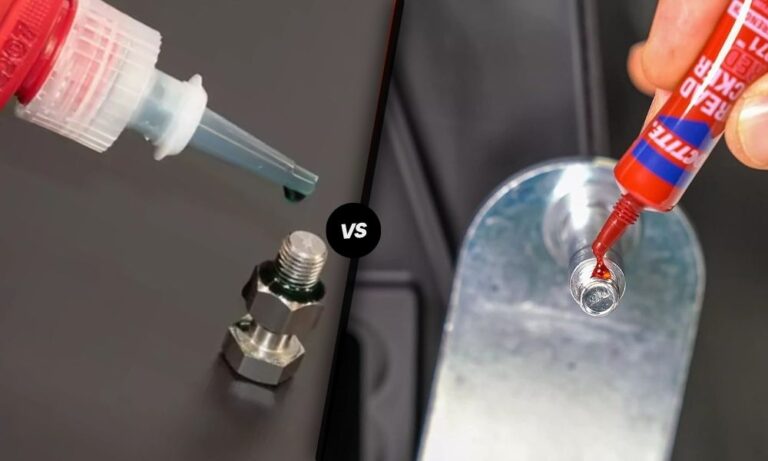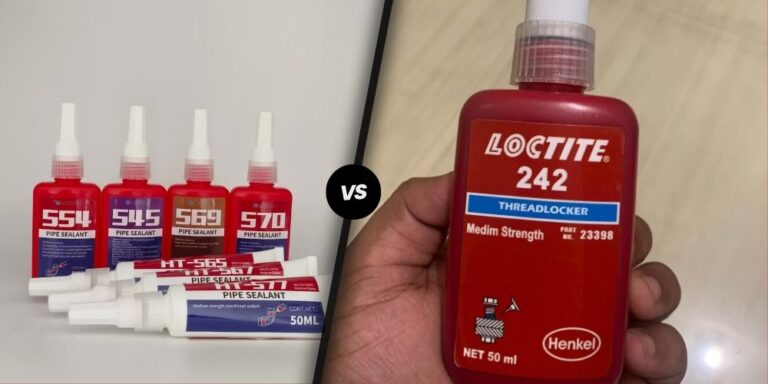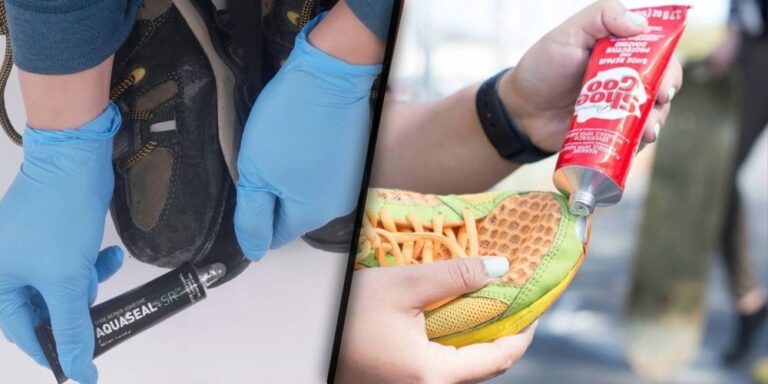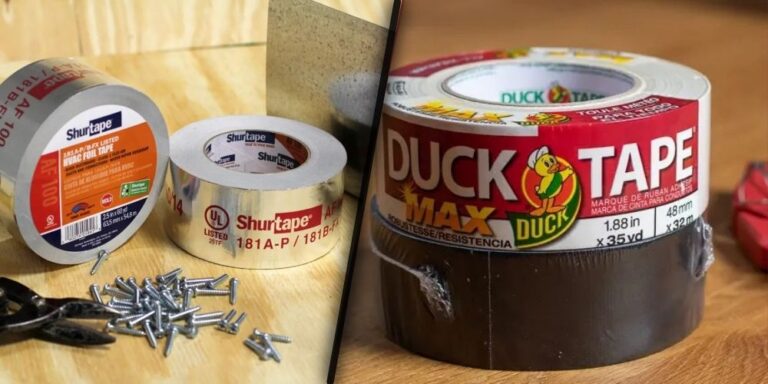Semco Liquid Membrane vs Flex Seal: Seal Test Results
Comparing Flex Paste and Flex Seal
Features of Flex Paste
Flex Paste is a super thick, rubberized paste specifically designed to fill large gaps, cracks, and holes instantly. It is highly durable and can be applied to a variety of surfaces, including wood, metal, and concrete. One of its standout features is its ability to work and dry underwater, making it particularly suitable for marine applications and other water-exposed environments.
Key Features of Flex Paste:
- Thick, Rubberized Paste: Ensures effective sealing of large gaps and cracks.
- Waterproof: Effective even underwater.
- Multi-Surface Application: Can be used on different surfaces like wood, metal, and concrete.
- Durable: Long-lasting solution for heavy-duty applications.
Features of Flex Seal
Flex Seal, on the other hand, is a liquid rubber coating that can be sprayed to create a waterproof, flexible barrier. It is ideal for quick fixes and covering large areas due to its easy spray-on application. Flex Seal mainly dries to the touch within 2-3 hours and fully cures within 24 hours. This product is durable and weather-resistant, making it useful for various outdoor applications.
Key Features of Flex Seal:
- Liquid Rubber Coating: Sprayed on for an even, comprehensive coverage.
- Quick Drying: Dries to the touch in 2-3 hours and cures fully within 24 hours.
- Weather-Resistant: Provides a durable barrier against the elements.
- Convenient Application: Ideal for large areas and quick repairs.
For a detailed comparison of adhesive products, check out our guides on 3m 4000 vs. 4200 marine adhesive and 3m spray adhesive 90 vs. 77.
Application and Usage of Flex Paste
Suitable Applications for Flex Paste
Flex Paste is a versatile solution known for its thick, moldable filler properties that make it ideal for various heavy-duty applications. It excels particularly in the following areas:
- Marine Repairs: Flex Paste can work and cure underwater, making it perfect for sealing leaks and gaps on boats and other watercraft.
- Large Gaps: Its thick consistency allows it to fill substantial gaps and cracks, providing a durable and long-lasting solution.
- Heavy-Duty Uses: Flex Paste’s impressive adhesion and durability make it suitable for industrial applications needing robust material.
If you’re looking for repair solutions in other contexts, you might find our guide on best adhesive for asphalt shingles helpful.
Unique Properties of Flex Paste
Flex Paste stands out due to its unique properties which cater to specific needs:
- Underwater Application: One of its standout features is the ability to work and dry underwater, ideal for marine and aquatic repairs.
- Moldable Filler: Its thick, pliable nature allows it to mold into various shapes to fit different repair needs.
- Chemical and Mildew Resistance: Flex Paste is resistant to chemicals and mildew, adding extra durability for long-term use.
- UV Resistance: Both Flex Paste and Flex Seal share the attribute of being UV resistant, which prevents degradation due to sunlight exposure.
For more details on adhesives and their unique features, you might be interested in exploring our comparison of metal glue vs. welding.
By understanding the applications and unique properties of Flex Paste, you can better determine whether it meets your specific repair needs. If you’re also considering Flex Seal, visit our section on Application and Usage of Flex Seal.
Application and Usage of Flex Seal
Suitable Applications for Flex Seal
Flex Seal is a versatile liquid rubber coating designed to provide a quick and easy solution for sealing leaks, cracks, and holes. It’s especially effective for larger areas, offering extensive coverage with minimal effort. Here are some common applications:
- Roofs: Sealing leaks and preventing water damage.
- Gutters and downspouts: To prevent rust and leakage.
- Windowsills: Protecting against drafts and water ingress.
- Plumbing: Temporary fixes for leaks in pipes and joints.
- Vehicles: Sealing small leaks and cracks on cars and RVs.
- Home repairs: Fixing minor issues in baseboards, foundations, and more.
For more information on its uses in distinct contexts, check out our article on flex seal vs. rust-oleum leakseal.
Advantages of Flex Seal
Flex Seal offers several advantages that make it a popular choice for quick and temporary repairs:
- Ease of Application: As a spray-on solution, Flex Seal is easy to use and requires no special tools or equipment. This makes it accessible for a wide range of users, from DIY enthusiasts to professional contractors.
- Extensive Coverage: Thanks to its liquid form, Flex Seal can easily cover large areas, ensuring a uniform application that effectively seals leaks and cracks.
- Affordability: Flex Seal products are generally more affordable, with prices ranging from $10 to $30 depending on the type and size (Stickyn). This makes it an ideal choice for budget-friendly repairs.
- Temporary Solutions: While Flex Seal is excellent for quick fixes, it is also suitable for temporary solutions until a more permanent repair can be made. This versatility adds to its appeal for various short-term projects.
- Versatility: Suitable for a wide range of materials, including wood, metal, tile, concrete, masonry, fabric, glass, plastic, aluminum, porcelain, drywall, rubber, cement, and vinyl. This makes Flex Seal a go-to choice for many home improvement and maintenance tasks.
| Advantage | Description |
|---|---|
| Ease of Application | Spray-on application requiring no special tools. |
| Extensive Coverage | Covers large areas uniformly. |
| Affordability | Priced between $10 and $30, ideal for budget-friendly repairs. |
| Temporary Solutions | Suitable for quick fixes and short-term projects. |
| Versatility | Works on various materials like wood, metal, and concrete. |
For further comparisons on adhesives and sealants, our articles on 3m spray adhesive 90 vs. 77 and flex seal vs. silicone provide detailed insights.
Flex Seal stands out for its user-friendliness and cost-effectiveness, making it a reliable option in the sealant market.
Price Comparison
Choosing between Flex Paste and Flex Seal often comes down to the cost as well as the intended use. Here’s how they compare in terms of pricing.
Flex Paste Pricing
Flex Paste is priced at a premium, reflecting its thick consistency, durability, and suitability for heavy-duty applications. According to Stickyn, a 12-pound can of Flex Paste is approximately $119.95.
| Product | Size | Price |
|---|---|---|
| Flex Paste | 12-pound can | $119.95 |
Flex Seal Pricing
Flex Seal offers a range of products that are generally more affordable, catering to quick, temporary fixes. Flex Seal products are priced between $10 to $30, making them a budget-friendly option for various sealing needs.
| Product | Size | Price Range |
|---|---|---|
| Flex Seal | varies | $10 – $30 |
When comparing semco liquid membrane vs. flex seal, consider both the price and the specific requirements of your project. For more information on related products, you can explore our articles on flex glue vs. flex seal and flex seal vs. rust-oleum leakseal.
For large-scale, heavy-duty applications, Flex Paste may be worth the investment. On the other hand, Flex Seal products offer a cost-effective solution for immediate repairs and temporary fixes, with various options at competitive prices.
Durability and Resistance
Flex Paste Durability
Flex Paste is engineered for demanding applications, including underwater repairs. Its thick consistency and ability to dry underwater make it ideal for marine repairs. This product is highly durable, creating a strong bond that can withstand harsh conditions.
| Feature | Flex Paste |
|---|---|
| Drying Time | 2-3 hours (touch), 24 hours (cure) |
| UV Resistance | Yes |
| Chemical Resistance | Yes |
| Mildew Resistance | Yes |
| Price | $119.95 for a 12-pound can |
Flex Paste’s UV and chemical resistance, coupled with its mildew-resistant properties, contribute to its long-term durability. This makes it suited for heavy-duty applications where enduring performance is critical.
For additional insights on adhesives, see our comparisons on 3m 4000 vs. 4200 marine adhesive and metal glue vs. welding.
Flex Seal Durability
Flex Seal products are versatile, easy to apply, and designed for quick fixes. They create a durable, weather-resistant barrier that cures fully within 24 hours. Flex Seal is perfect for temporary solutions or budget-friendly repairs.
| Feature | Flex Seal |
|---|---|
| Drying Time | 2-3 hours (touch), 24 hours (cure) |
| UV Resistance | Yes |
| Chemical Resistance | Yes |
| Mildew Resistance | Yes |
| Price | $10 to $30 |
Both Flex Paste and Flex Seal offer UV resistance and are resistant to chemicals and mildew, ensuring their longevity. Flex Seal’s ease of application and affordability make it suitable for covering larger areas quickly and efficiently.
For more details, explore our articles on 3m 90 vs. gorilla spray adhesive and flex seal vs. silicone.
These properties reinforce the importance of considering the specific needs of a project when choosing between Flex Paste and Flex Seal.
UV and Chemical Resistance
When comparing Semco Liquid Membrane and Flex Seal, understanding their resistance to UV rays and chemicals is crucial for ensuring long-term performance and durability.
UV Resistance Comparison
Both Semco Liquid Membrane and Flex Seal offer UV resistance, making them suitable for outdoor applications where exposure to sunlight is a concern.
- Semco Liquid Membrane: This product boasts significant UV resistance, ensuring it remains durable and effective even after long-term exposure to sunlight.
- Flex Seal: This liquid rubber coating also provides UV resistance, offering a durable, weather-resistant barrier that remains intact under sunlight.
| Product | UV Resistant |
|---|---|
| Semco Liquid Membrane | Yes |
| Flex Seal | Yes |
Chemical Resistance Comparison
Chemical resistance is particularly important for applications where the material will be exposed to harsh substances. Both Semco Liquid Membrane and Flex Seal offer varying degrees of chemical resistance.
- Semco Liquid Membrane: Known for its superior chemical resistance, the SEMCO Liquid Membrane™ also boasts resistance to mildew, making it highly durable for long-term use in chemically demanding environments.
- Flex Seal: While Flex Seal provides a durable seal, it is primarily designed for weather resistance and may not offer the same level of chemical resistance as SEMCO.
| Product | Chemical Resistant |
|---|---|
| Semco Liquid Membrane | Yes |
| Flex Seal | Limited |
For more detailed comparisons of sealants and adhesives, you can check out our articles on pva glue vs. elmer and 3m spray adhesive 90 vs. 77.
Understanding these features can assist in choosing the right product for your specific needs, whether it is for heavy-duty tasks or more routine maintenance. For additional information on these and similar products, you can explore our guides on flex seal vs. silicone and 3m 4000 vs. 4200 marine adhesive.
